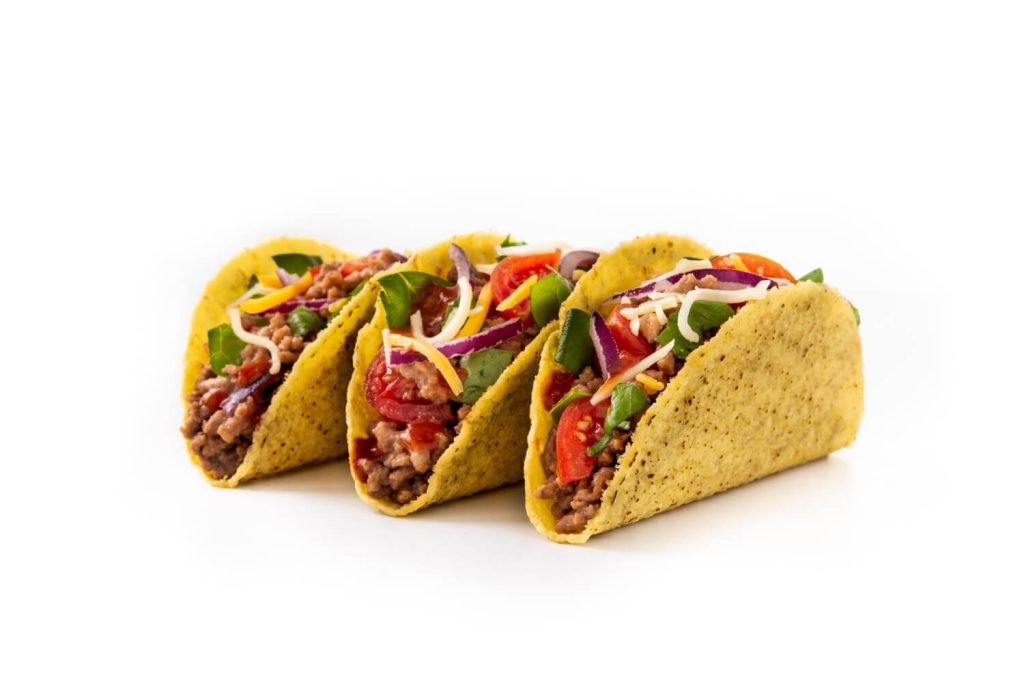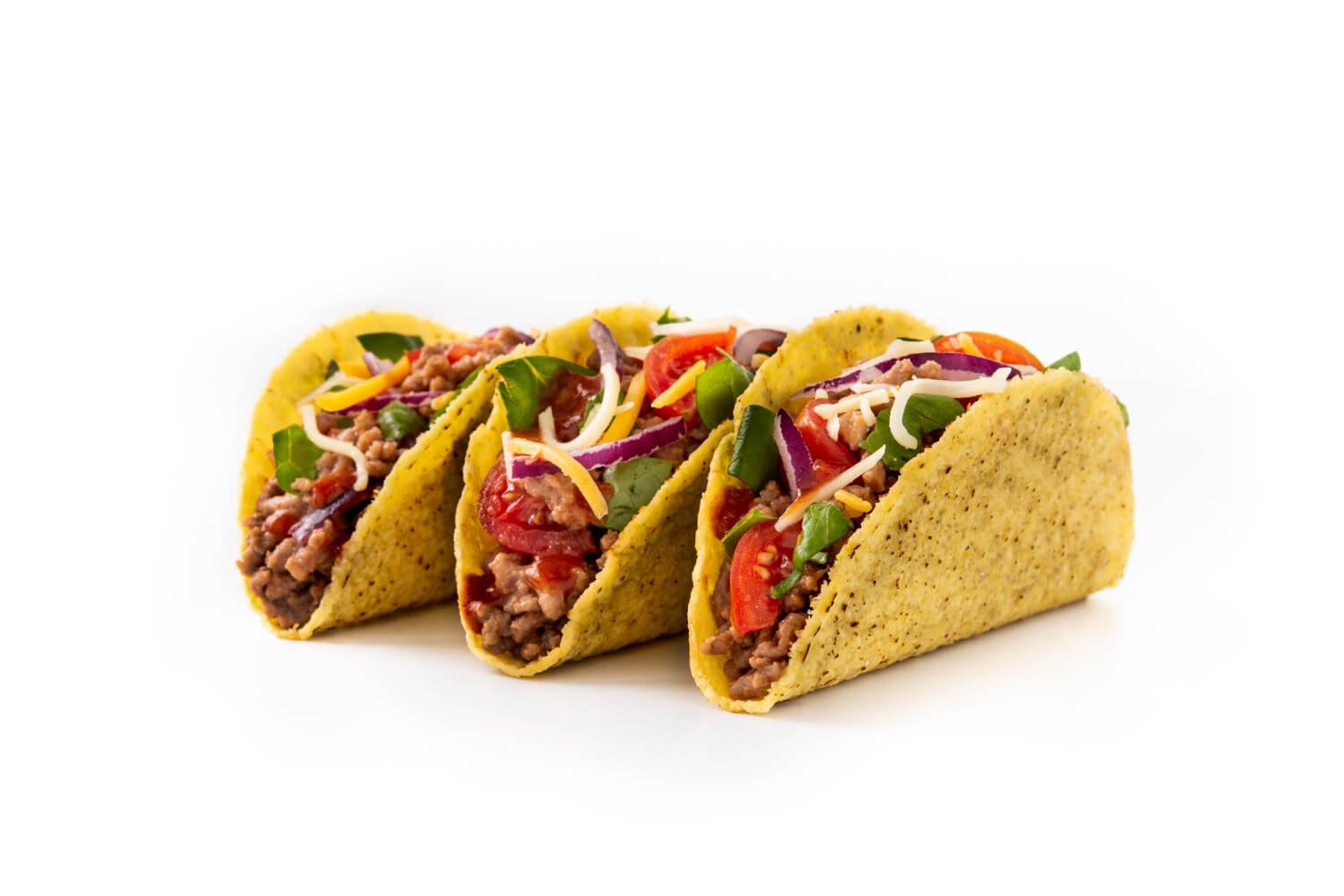There’s something incredibly fulfilling about biting into a juicy taco. And when we’re talking about accessible, consistently appetizing tacos, Taco Bell inevitably pops into the conversation. However, in an age when digital transactions are increasingly becoming the norm, questions surrounding payment methods are bound to crop up. Suppose you’ve got a crisp $50 bill tucked in your wallet, and you’re yearning for a Doritos Locos Tacos. You can’t help but wonder, “Does Taco Bell accept 50 dollar bills?”
The quick and straightforward answer to your query is: Yes, they do. Most of the time, Taco Bell, like numerous other national fast-food chains, does accept 50-dollar bills. But the background story behind this policy is not as simple as it seems. There’s an entire system operating behind the cash register, which you might be unaware of, all targeted towards ensuring your taco experience is as satisfying as possible.
Related: Does McDonald’s Accept 50 Dollar Bills?
Does Taco Bell accept 50 dollar bills?

The confirmation of Taco Bell’s acceptance of 50 dollar bills should bring a sigh of relief to many. However, the factors that make this policy possible are many and diverse. The journey from policy creation to the acceptance of your $50 bill at your local Taco Bell outlet is much more complicated than it may seem on the surface.
While larger bills like $50 or $100 are generally accepted, it’s essential to understand that the acceptance depends on a host of factors. These can range from the specific store location, the timing of the transaction, to the individual store policies. Several outlets might have reservations about accepting larger bills, primarily due to concerns related to counterfeiting and providing the appropriate change, particularly during early operational hours when the cash register may not have an abundant supply of change.
Also Read: Grubhub Plus Benefits – Is it Worth it?
Why Accepting Larger Bills Can Be A Challenge
The acceptance of larger denomination bills often presents challenges to the businesses. The bigger the value of the note, the higher the stakes. The concern intensifies primarily due to two factors – the risk of counterfeit bills and the logistic issue of maintaining enough change. Both of these factors are critical to understanding why your $50 bill might sometimes be greeted with a frown.
Counterfeit Concerns
Let’s get this straight – counterfeit money is a nightmare for any business. As per the United States Department of Treasury, approximately $70 million worth of counterfeit bills are believed to be in circulation. While this might seem a small amount in comparison to the estimated $1.4 trillion worth of genuine U.S. currency in circulation, the impact of a counterfeit note can be substantially damaging for a small business. Although Taco Bell and its parent company, Yum! Brands, are huge entities, individual franchises can be significantly affected by a single counterfeit incident.
The prevalence of counterfeit bills has led many businesses to adopt strict policies about accepting larger denomination bills. However, Taco Bell, being a customer-friendly brand, tends to lean towards customer convenience while ensuring necessary precautions are in place.
Managing Change
Remember the time when your attempt to pay for your morning Chalupa with a $50 bill was declined because the outlet couldn’t provide change? This is not an uncommon scenario. Cash registers are often not fully stocked with change early in the day, which limits the outlet’s ability to break large bills. Therefore, certain locations might restrict the acceptance of large bills during specific times of the day.
How Taco Bell Handles Cash Transactions
Despite the challenges associated with handling larger denomination bills, Taco Bell tries to accommodate the needs of its customers. The brand has put several measures in place to streamline cash transactions and mitigate issues related to counterfeit bills and change.
Preventing Counterfeit Bills
To combat the issue of counterfeit money, Taco Bell, like most retailers and restaurants, trains its cashiers to identify counterfeit money. Cashiers use counterfeit detection pens and look for security features such as color-shifting ink, watermark, and the security thread. If you’ve noticed a cashier holding your $50 bill against the light, now you know they’re not admiring Benjamin Franklin’s portrait but checking the authenticity of the bill.
Ensuring Adequate Change
Taco Bell locations ensure they can provide change for larger bills by maintaining a higher level of small bills and coins in their registers. Regular drops to the safe are made to minimize the amount in the register, reducing the risk of being unable to provide change. This is a careful balancing act between maintaining customer satisfaction and ensuring smooth operational efficiency.
Related: Why is Grubhub So Expensive? [11 Reasons Why]
Taco Bell’s Policies versus Independent Franchise Policies
While the broad policy of Taco Bell is to accept 50 dollar bills, it’s important to understand that individual franchises may have their own specific policies. Factors influencing these policies include local customer behavior, the level of counterfeit risk in the area, and past experiences with counterfeit incidents.
A Brand’s Policy and A Franchise’s Autonomy
While Taco Bell’s brand policy serves as a guideline for all its stores, individual franchises enjoy a degree of autonomy. This includes the flexibility to set their cash handling policies within certain bounds. Hence, you may find variations in policies from one Taco Bell outlet to another.
Franchises use this autonomy to adapt their policies based on their unique local conditions. This is a crucial aspect of ensuring that the franchise can operate efficiently while also maintaining alignment with Taco Bell’s broader brand policies and customer expectations.
Experiences from the Frontline
In many cases, the cash handling policies of a Taco Bell outlet may be influenced by their past experiences. For example, a Taco Bell in a neighborhood with a history of counterfeit bills circulation might be more cautious about accepting larger denomination bills compared to an outlet in a neighborhood without such issues.
Digital Payments: The Rise of Cashless Transactions
As our economy is increasingly becoming digital, many customers are moving away from cash and choosing to pay with cards or mobile payment apps. This change in customer behavior has implications for Taco Bell’s cash policy and could influence how the brand adapts to these trends in the future.
Convenience of Going Cashless
The convenience and speed of digital payments have made them a popular choice for many customers. The preference for digital payments has been particularly evident during the COVID-19 pandemic when contactless transactions have become the new normal. With digital payments, customers no longer need to worry about having the right change or the acceptance of larger denomination bills.
How Taco Bell is Adapting
Recognizing these trends, Taco Bell has embraced digital payments by accepting a wide range of options, including credit and debit cards, Taco Bell gift cards, and mobile payment apps such as Apple Pay and Google Pay. With its own mobile app, Taco Bell allows customers to order and pay for their meals seamlessly.
This shift towards digital payments means that the question of whether Taco Bell accepts 50 dollar bills could become less relevant over time. As the brand continues to adapt to changing customer behaviors and preferences, it’s likely that digital payments will play an increasingly prominent role in Taco Bell’s payment options.
FAQs
Q: Does Taco Bell accept 50-dollar bills?
A: Yes, Taco Bell generally accepts 50-dollar bills.
Q: Why might some Taco Bell locations not accept my 50-dollar bill?
A: Certain locations may have their own policies based on factors like local counterfeit risk, availability of change, and time of day.
Q: Does Taco Bell accept 100-dollar bills?
A: Generally, Taco Bell does accept 100-dollar bills, but policies can vary from store to store.
Q: Can I pay digitally at Taco Bell?
A: Absolutely! Taco Bell accepts various forms of digital payment, including credit and debit cards, Taco Bell gift cards, and mobile payment apps such as Apple Pay and Google Pay.
Q: Does Taco Bell have its own mobile app?
A: Yes, Taco Bell has its own mobile app where you can order and pay for your food.
Q: What does Taco Bell do to prevent accepting counterfeit money?
A: Taco Bell trains its cashiers to identify counterfeit bills, and they often use tools like counterfeit detection pens and UV lights.
Conclusion
While Taco Bell generally accepts 50 dollar bills, individual franchises might have policies that differ based on local conditions and experiences. As a customer, it’s always a good idea to have alternative payment methods ready, such as smaller denominations or a digital payment option. However, as the trend toward cashless transactions continues to grow, the relevance of Taco Bell’s cash policy might decrease over time. In the grand scheme of things, when it comes to satiating your Taco Bell cravings, the form of payment should ideally be the least of your concerns!


